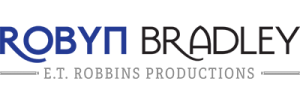Cost-Per-Click vs Cost Per Click: Will it Cost Less if You Lose the Hyphens?
Dear Copy Bitch: We are always having these debates in the office. I am always on the losing end, but I think I’m right.
1. Is website one word or two?
2. Do you capitalize internet?
3. Do you put dashes between “cost-per-click”?I know I have others, but now of course, I can’t think of any of them. I thought maybe other people need/want to know the answers.
~ Becca S, New York, New York
Well, you might not love my answer, which is this: It depends. It depends on the style guide you follow (AP, MLA, Chicago, etc.) and/or the rules your company or publication has adopted.
And keep in mind that language is fluid. The so-called “rules” change.
Back in 2002 when I started my copywriting business, I wrote “Web site” as two words, complete with a capital W. Now I write “website” as one word, but I occasionally see it as two words even now.
As for “Internet,” I follow the rule that it’s the name of a place, just like Paris and Boston. So I capitalize it. But plenty of reputable pubs don’t.
As for cost per click vs. cost-per-click (with hyphens), same answer: It depends on the person, the editor, the business owner, the publication. For me, I follow this rule: I don’t usually use hyphens if the term is used as a noun: What was the cost per click for the most recent ad campaign? or The cost per click was $1.45.
However, if a term is used as an adjective, that’s when I’d add hyphens: We need to be mindful of our cost-per-click budget. But again, I see sentences that violate my rule all the time (and I’m sure some smart reader could point out places where I violate my own rule).
The key is consistency. Be consistent with your usage and follow the organization’s style guides. All publications have style guides. Smart companies should have internal style guides that address items like the ones you list above (in addition to other things, such as serial commas). Anyone who creates content for the company (marketers, copywriters, consultants, etc.) should receive copies of the style guide (and adhere to the rules).
Language is fun. Here are my go-to writing and editing resources.
Note: I use affiliate links for some of them. If you use one of the links to buy something, it won’t cost you more, but I’ll earn a small commission. I only recommend stuff that I believe in.
- Grammarly. The free version is great at catching critical errors. I used it for about a year before upgrading to the premium tier, and I’m glad I did. You can sign up for the free version here. (If you sign up or buy via my affiliate link, it won’t cost you more, but I’ll earn a small commission.)
- A Writer’s Reference by Diana Hacker and Nancy Sommers. (Amazon affiliate link link.) I have the fifth edition, which is excellent. I’m thinking about upgrading to the 10th. Hacker was incredible. She died in 2004, but her memory lives on.
- Dreyer’s English: An Utterly Correct Guide to Clarity and Style by Benjamin Dreyer. (Amazon affiliate link.) Another gem. I gave this one to Mr. Word Nerd.
